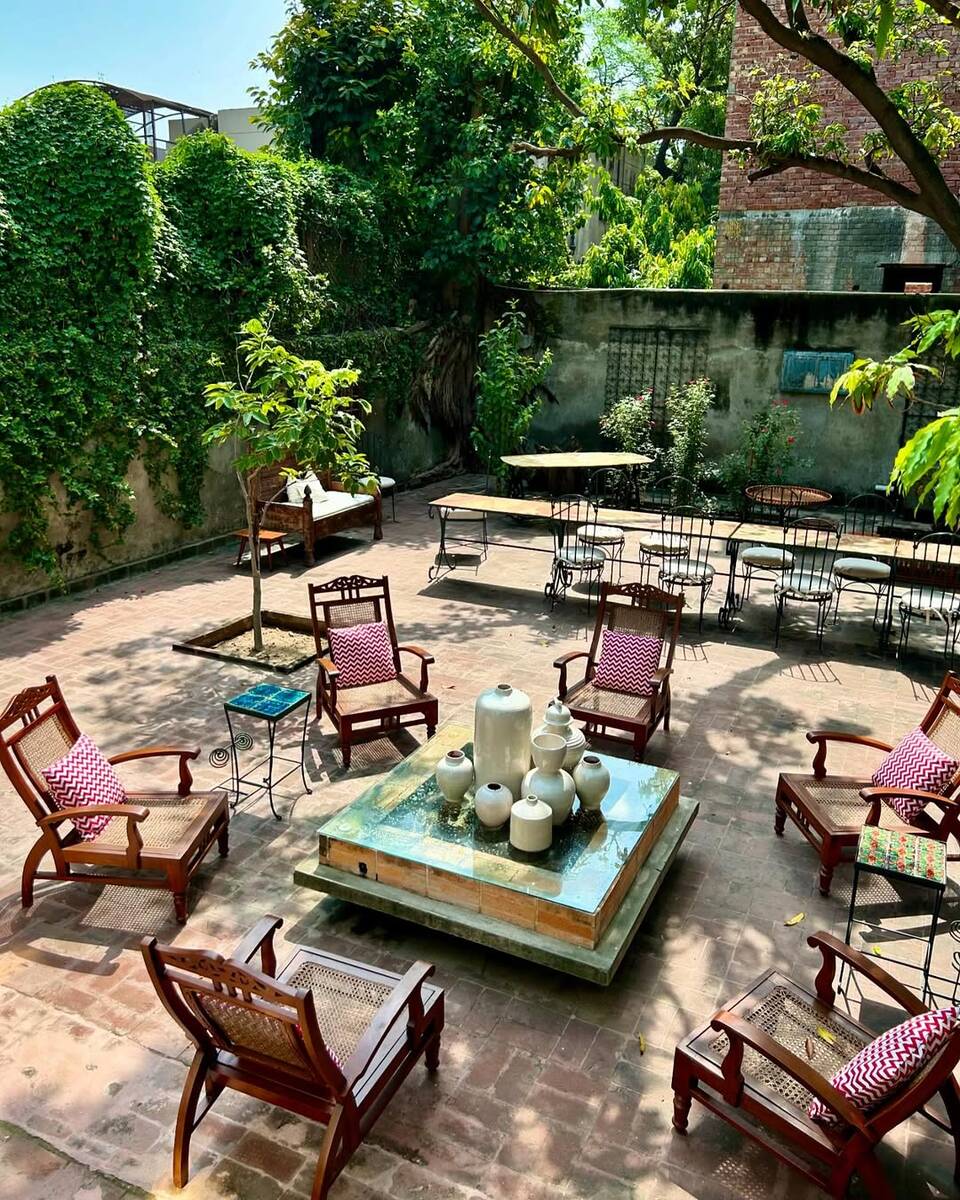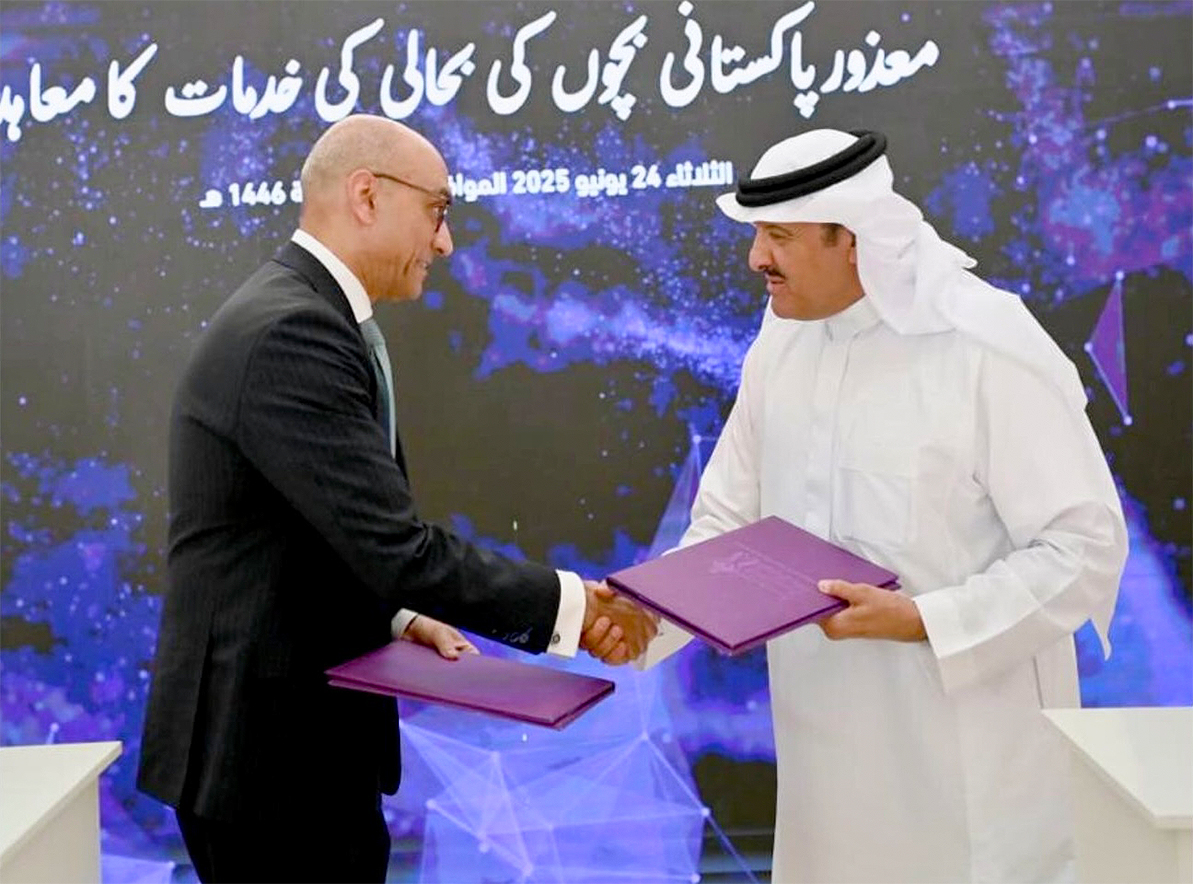KARACHI: Just a day earlier on Wednesday, Tehreek-e-Labbaik Pakistan (TLP) was the only party whose supporters were protesting all over Pakistan against the apex court’s decision to acquit a Christian woman on death row.
On Thursday, that number grew to hundreds after workers from the Jamiat Ulema-e-Islam Fazal (JUI-F) defied the ban on demonstrations and amassed at the Karachi Press Club to hear the fiery speeches of their party leaders. They chanted slogans of support as Rashid Mehmood Soomro, Sindh President of the JUI-F, asked the protestors if they would join in to lay siege on the Supreme Court of Pakistan.
At the core is the issue of Aasia Bibi, a 51-year-old woman who was on death row for the past eight years after being convicted on blasphemy charges by a lower court in 2010. The Supreme Court on Wednesday overturned the decision citing a lack of credible evidence in her case, acquitting Bibi of all charges. Taking objection to the decision, the TLP and other religious parties are now pushing the top court to overrule the verdict, threatening that they would continue with their protests until the Supreme Court gives in.
Meanwhile, in Lahore, the Milli Yakjehti Council (MYC), an alliance of 15 religious groups, representing all schools of thoughts -- and including mainstream Jamaat-e-Islami Pakistan (JIP), Jamiat-Ulema-e-Islam Fazal (JUIF), Jamiat Ulema-e-Pakistan (JUP), and Hafiz Saeed’s Jamaat-ud-Dawa (JuD) -- gave a call for a nationwide strike on Friday.
“The MYC meeting presided by its president, Dr Sahibzada Abul Khair Zubair, has decided to observe a countrywide strike tomorrow,” Qaiser Sharif, central information Secretary of JIP, told Arab News.
Sharif added that the meeting also decided to hold an All Parties Conference (APC) at Lahore’s Al Qadsia mosque on Saturday. “The meeting will be followed by a media briefing, in which the future ‘line of action’ will be announced,” Sharif said.
He added that the religious parties while condemning the “insulting” speech by Prime Minister Imran Khan on Wednesday night, have called upon his government to place Bibi on the Exit Control List, even as they announced plans to file a review petition in the case.
PROTESTS MAINSTREAMING
Zia Ur Rehman, a Karachi-based analyst, said that the TLP is a key political party which has exploited the issue of blasphemy and does not want other religious and sectarian parties to take advantage of it.
“The other religious parties, especially the Jamaat-e-Islami and the Jamiat-e-Ulema Islam-Fazl, did not take interest in the issue in the recent past,” said Rehman. “However, after the acquittal of Aasia Bibi, they have also jumped on the bandwagon but did not get so much praise from the religious circles.”
Abdul Jabbar Nasir, a political analyst studying the functioning of religious parties, said that PM Khan’s “unnecessary” speech on Wednesday night has given a further impetus to the cause of mainstream religious parties by pushing them to play an even more active role. “Religious political parties now believe that not launching a fierce campaign against the apex court’s judgment would result in their political and ideological death,” Nasir said.
Nasir recalls that the very foundation of TLP – led by Khadim Hussain Rizvi -- was built on the issue of blasphemy, specifically Bibi’s case. “It was the execution of Mumtaz Qadri which provided a base for Rizvi to launch his religious political party so he has no option but to go to any extreme for his survival,” Nasir opines. “After the PM’s speech, the mainstream religious cliques would do maximum but still they would remain in limits.”
He added that TLP’s leadership is “accidental and thus not serious, so there are always chances of decisions being taken without keeping repercussions in mind. The mainstream groups would think before every likely step”.
However, Qari Muhammad Usman, central leader of the JUI-F, disagrees that protest was not a priority for the religious parties. “We were out on the road immediately after the apex court handed down the decision. We are out today and will continue to protest till the controversial decision is taken back,” Usman told Arab News.
Without naming PM Khan, the JUI-F leader said those who think only few are taking part in the protests are living in a fool’s paradise. “A governor and a federal minister have been killed whereas Mumtaz Qadri was also killed due to this case. It’s not a normal case and the apex court should have refrained from announcing a controversial verdict in it,” the JUIF leader argued.
JIP’s Sharif added that the religious parties won’t stop protesting but that the demonstrations would be completely peaceful and within the limits of the constitution.
More religious parties to protest against Bibi's acquittal
More religious parties to protest against Bibi's acquittal

- Alliance of top organizations announces nationwide strike on Friday
- Experts say PM Khan’s “unnecessary speech” boosted groups to play active role
Pakistan okays 50 percent increase in fixed gas charges for domestic consumers

- Gas prices increased for general industries, power stations and independent power producers to shift partial burden
- The move aligns with structural benchmarks agreed with the IMF, including rationalization of captive power tariffs
ISLAMABAD: The Pakistani government has revised gas prices for the fiscal year 2025-26 and okayed a 50 percent increase in fixed charges for domestic consumers, effective from July 1, the Oil and Gas Regulatory Authority (OGRA) announced on Sunday.
The development comes days after the federal cabinet’s Economic Coordination Committee (ECC) approved the hike in fixed gas charges for domestic users and to shift the partial burden to bulk consumers, like the power sector and industry.
“Protected category to pay a fixed charge of Rs600 and meter rent of Rs40,” an OGRA notification said on Sunday. “Non-protected category to pay a fixed charge of Rs1,500, up to 1.5hm³ (cubic hectometers), while Rs3,000 for exceeding consumption of 1.5hm³ and meter rent of Rs40.”
While the government has increased the fixed charges, the sale prices of gas for both protected and non-protected consumers remain unchanged, according to the notification.
The government also kept prices for tandoors commercial units, compressed natural gas and ice factories unchanged, but increased the rates for general industries, power stations and independent power producers.
The move aligns with structural benchmarks agreed with the International Monetary Fund (IMF), including rationalization of captive power tariffs and a shift from subsidies to direct, targeted support for low-income consumers.
Architectural Digest Middle East lists Lahore’s Wusaaq hotel among world’s best

- Tucked behind bougainvillea-covered walls in Lahore’s Gulberg neighborhood, Wusaaq is a mid-century residence-turned-guest house
- The 1950s Pakistani home, preserved with minimal intervention, shows contemporary Pakistani art blending memory with modern comfort
ISLAMABAD: The Architectural Digest (Ad) Middle East magazine, part of the Condé Nast portfolio, has compiled a list of 31 best hotels in the world in 2025, naming Lahore’s Wusaaq hotel among them.
Launched in 2015, the bi-monthly magazine spotlights exceptional design by Middle Eastern and international talents, provides an exclusive view into the world’s most beautiful spaces and inspires readers to refresh their lives.
These 31 exotic hotels, located in 18 countries, brim with exceptional design ranging from a cinematic new Roman address to a Saudi resort that looks like tiny UFOs have landed on the Red Sea coast to exotic properties in Paris, Dubai, Doha, Mumbai, Luxor and London.
Tucked behind bougainvillea-covered walls in Lahore’s Gulberg neighborhood, Wusaaq is a mid-century residence-turned-soulful guest house that was restored by Faaria Rehman Salahuddin as a tribute to her late mother.
“Quietly luxurious and entirely personal, Wusaaq reflects a kind of hospitality that values presence over polish – a rare, radiant stay in the heart of a lively city,” reads the AD magazine article, published on June 26.

The 1950s Pakistani home has been preserved with minimal intervention – original porcelain tiles, brass fittings, and retro light switches remain intact. Each of the five rooms is named after a flower, with pietra dura inlaid keys inscribed in Urdu and English, according to the publication.
In the courtyard, fruit and a sprawling peepal tree offer shade where guests gather for breakfast served on heirloom crockery. Inside, window chiks, a traditional kitchen dolly, custom furniture, and contemporary Pakistani art blend memory with modern comfort.

In a post on Instagram, Wusaaq said it celebrated the listing.
“We are overwhelmed and humbled by the love and appreciation sent to us by our patrons, guests, friends and family,” the hotel said.
The list, according to the AD Middle East magazine, offers a space for all sorts of travelers from city break lovers to those who prefer nothing more than an escape into the wilderness.
Pakistan warns of more showers, landslides after rains kill 31

- The downpours, likely to continue till July 5, may disrupt transportation, communication and electricity services
- Pakistan, home to over 240 million, is currently bracing for an extreme monsoon season that lasts till mid-Sept.
ISLAMABAD: Pakistan’s National Disaster Management Authority (NDMA) on Sunday warned of more showers, flash floods and landslides in the country from June 29 till July 5, following the deaths of more than 30 people rain-related incidents this week.
Downpours are expected to hit Kashmir, northeastern Punjab, Potohar region, Islamabad, and upper and central parts of Khyber Pakhtunkhwa between June 29 to July 3. This may result in urban flooding in low-lying areas of Central Khyber Pakhtunkhwa, particularly in the cities of Peshawar, Charsadda, Nowshera, and Kohat.
In the Potohar region, including Attock, Chakwal, Rawalpindi, and Islamabad, there is a high likelihood of urban flooding, especially during the nighttime hours from 9pm to 4am on June 29. Rain emergencies may also occur in the low-elevation areas of Jhelum, Mandi Bahauddin, Gujrat, Sialkot, Gujranwala, Narowal, Lahore, Faisalabad and Sargodha.
“These conditions could lead to disruption of transportation in hilly and mountainous regions, landslides, and interruption of communication and electricity services,” the NDMA said in a statement on Sunday afternoon.
“NDMA urges all provincial and district administrations to remain on high alert, activate contingency plans, and ensure timely dissemination of warnings in local languages.”
The authority cautioned against possible flash flooding in Hazara and Malakand Divisions in Khyber Pakhtunkhwa, lower parts of Jhelum and Poonch valleys in Azad Kashmir, and the Pir Panjal range in northeastern Punjab.
“Low-level flooding is anticipated in River Kabul at Nowshera and its tributaries, along with medium flows in Swat River,” it said.
“Similar low-level flows are expected downstream of Tarbela Dam and in the Chenab River at Khanki and Qadirabad. Additionally, flash floods are likely in tributaries and streams of River Chitral and Hunza.”
The Sindh province in the country’s south is expected to receive heavy to very heavy rainfall, particularly affecting Hyderabad, Badin, Thatta and Karachi from June 29 till July 5, according to the NDMA.
The risk of urban flooding in low-lying areas of Karachi division is expected to increase significantly from July 2, particularly in the districts of Hyderabad, Thatta and Badin, where rainwater accumulation may trigger localized flooding and emergency conditions.
“Citizens, especially those in high-risk areas, are advised to stay updated through official adviseries, avoid unnecessary travel near glacial streams, riverbanks, and flooded roads, and keep emergency kits ready,” the authority said.
The Balochistan provincial disaster management authority (PDMA) said thundershowers were expected in several parts of the province over the next 36 hours.
“Landslides/mudflow may also occur in hill torrents due to flash water course,” it said, adding that Lasbela, Wadh, Hub, Awaran, Khuzdar, Surab, Kalat Barkhan and Musakhel districts were likely to be affected.
Isolated falls of rain were also expected in Barkhan, Ziarat, Harnai, Naseerabad, Kacchi, Loralai, Quetta, Mastung, Zhob, Duki, Sohbatpur, Jafarabad, Kohlu, Killa Saifullah, Jhal Magsi, Usta Muhammad, Sherani, Dera Bugti, Panjgur, Gwadar and Kech districts.
Heavy rains have lashed Pakistan’s Khyber Pakhtunkhwa, Punjab and Sindh provinces since June 27, raising water levels in rivers to alarming levels and triggering floods in various cities across the South Asian country.
The death toll from drownings in the wake of flash flooding in Pakistan’s northwestern Swat River has climbed to 12, the main rescue service in KP said on Sunday.
Six people have been killed in Punjab, 18 in KP and seven in Sindh over the last two days, the NDMA said on Sunday. Punjab reported the highest number of injuries in the same period, 21, followed by Sindh with 16 and KP with six.
Pakistan, home to over 240 million people, is considered one of the world’s most vulnerable countries to the effects of climate change and faces extreme weather events with increasing frequency.
Prime Minister Shehbaz Sharif on Saturday directed the NDMA to enhance coordination with provinces and issue timely weather alerts to citizens via cellphone messages.
Islamabad’s mission, Saudi non-profit join hands to assist Pakistani special needs children in Kingdom

- Specially abled Pakistani children will now be able to get evaluative clinics, rehabilitative services at a 60 percent discount
- Saudi Arabia is home to over 2.5 million Pakistani expatriates and serves as the top source of remittances to South Asian nation
ISLAMABAD: The Pakistani embassy in Riyadh has signed an agreement with Saudi Arabia’s Children with Disabilities Association (CDA) non-profit group to provide Pakistani children with special needs in the Kingdom with a 60 percent discount on clinical and rehabilitation services at CDA facilities, Pakistan’s ambassador to Saudi Arabia said on Sunday.
Founded in 1982, the CDA is one of the largest child rehabilitation institutions in the region, providing care and support through rehabilitation and education to disabled children from birth until they are 12 at 11 CDA branches supported by a community of 4,900 members.
Pakistan’s Ambassador to Saudi Arabia Ahmed Farooq and CDA Board of Directors Chairman Prince Sultan bin Salman bin Abdulaziz signed a cooperation agreement in Riyadh on June 24 for Pakistani special needs children for a period of one year, extendable with the mutual consent of both parties.
“We are pleased to share that a long-standing demand of our community has been fulfilled,” Ambassador Farooq told Arab News, adding that the embassy can now refer specially abled Pakistani children below the age of 14, who require evaluative clinic and rehabilitative services, to the CDA.
“All centers of the association will offer these children the support they need, including a 60 percent reduction in their rates.”

The Pakistani envoy said the CDA would offer rehabilitative services to these children in both English and Arabic languages, and thanked Prince Sultan for his support in this regard.
Pakistan and Saudi Arabia enjoy strong trade, defense, cultural and brotherly relations. The Kingdom is home to over 2.5 million Pakistani expatriates and serves as top source of remittances to the cash-strapped South Asian country.
To avail this service, Ambassador Farooq said, Pakistani community members will have to send a written request to the embassy, including full name, age and passport details of the child.
“Upon receiving requests, the embassy will refer them to the association for further processing, after which the child will be enrolled as a student at a [CDA] center,” he said, hoping this important step will not only address the immediate needs of the community but will also help build confidence in the mission’s public service.
The implementation of the cooperation instrument began on the date of signing of the agreement between both sides and will remain in effect for one year, according to the agreement seen by Arab News.
The agreement was driven by the Pakistani mission’s interest in providing rehabilitation services to the expat community and the CDA’s goal to enhance the level of services provided to children with disabilities in different regions of the Kingdom, whether citizens or residents.
“The second party [CDA] will offer a special discount for assessing and providing rehabilitative services to referred beneficiaries,” the document said, adding that the beneficiaries’ guardians were responsible for covering the costs of assessment and therapeutic services after the discount was applied.
It stated that the association would provide an annual report on the services rendered to patients under this cooperation.
“A contact officer and coordinator shall be appointed by both parties, with each party providing the other with names and information before commencing work under this instrument of cooperation,” the document said.
China rolls over $3.4 billion of commercial loans to Pakistan

- The IMF required Pakistan’s foreign exchange reserves to be over $14 billion at the end of the current fiscal year on June 30
- Foreign loans, especially the Chinese ones, are critical to shoring up cash-strapped Pakistan’s low foreign exchange reserves
KARACHI: China has rolled over $3.4 billion in loans to Islamabad, which together with other recent commercial and multilateral lending will boost Pakistan’s foreign exchange reserves to $14 billion, a finance ministry source said on Sunday.
Beijing rolled over $2.1 billion, which has been in Pakistan’s central bank’s reserves for the last three years, and refinanced another $1.3 billion commercial loan, which Islamabad had paid back two months ago, the source said.
Another $1 billion from Middle Eastern commercial banks and $500 million from multilateral financing have also been received, he said.
“This brings our reserves in line with the IMF target,” he said.
The loans, especially the Chinese ones, are critical to shoring up Pakistan’s low foreign reserves, which the IMF required to be over $14 billion at the end of the current fiscal year on June 30.
Pakistani authorities say that the country’s economy has stabilized through ongoing reforms under a $7 billion IMF bailout.










